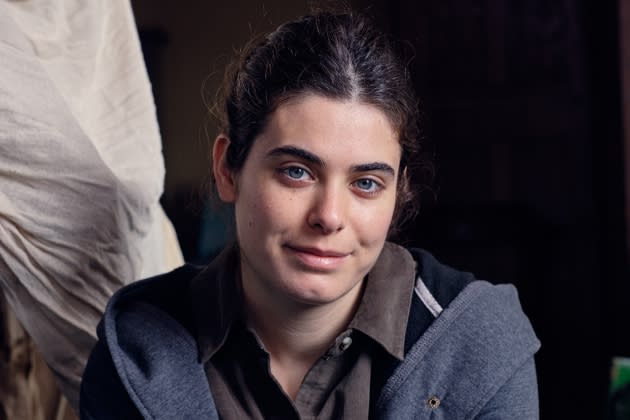Next Big Thing: ‘The Old Oak’ Breakout Ebla Mari on Skipping Theater Class for Ken Loach’s Final Film

Ebla Mari has a confession. Before she was approached for the lead role in Ken Loach’s latest (and quite possibly, last) film The Old Oak, she says she was “ashamed” to say she didn’t know who the director was.
Not that the 25-year-old really had any reason to.
More from The Hollywood Reporter
'Gladiator' Russell Crowe Returns to Rome - as Expo Pitchman
Inside the Glorious - and Troubled - History of Italy's Taormina Film Festival
Nicolas Coster, Actor on 'Another World,' 'Santa Barbara' and 'All My Children,' Dies at 89
As a Syrian theater teacher in the village of Majdal Shams, part of the Golan Heights that has been under Israeli military occupation since the six-day war of 1967, and with no previous screen experience, it’s understandable if Loach’s body of work — largely focussed on the troubles within U.K. society — may have passed her by. But Mari soon caught up.
In The Old Oak, she plays Yara, a Syrian refugee and recent U.K. arrival shipped off with her family to a former mining town in the northeast of England and into the center of a community torn apart by decades of neglect and where dirt-cheap housing is sold online to faceless overseas companies. It’s also a community that often views its foreign arrivals not with solidarity as fellow victims, but as part of the problem. Yara becomes the key bridge after she befriends TJ, the manager of the village’s last remaining pub, which becomes something of a battleground.
It was actually Palestinian director Annemarie Jacir that first connected Mari with the film. “She was helping Ken to look for a Syrian actress, both in Syria and the Golan Heights, and knew an actor in my village, who talked to her about me,” she says. A 15-minute Zoom with Loach and his casting director Kahleen Crawford followed by an online audition later, and in the summer of 2022 Mari was in Newcastle, near where The Old Oak was being shot.
While she may not be a Syrian refugee like Yara, Mari notes that the decade-long civil war is only over the border from her hometown. “It’s not so distant,” she says. “We can see it and have heard the bombs, and we have family there. So I know what’s happening.”
But to relate the story to that of Yara, she researched the city of Homs, where the character is from, learned the precise accent, watched documentaries and spoke to friends. And while in the U.K., in the two weeks before the shoot began, she visited Syrian refugees who themselves had been sent by authorities to live in these old mining towns, going into their homes and hearing their stories.
“It was very, very hard to hear it up so close, and very emotional,” she says. “On one hand, it is obviously good that they’re not in a tent in a refugee camp. But on the other hand, it’s an ongoing trauma. Their families are separated and they feel like they’re alone.”
Like many of Loach’s stars over the years, after her debut film and first experience of the Cannes film festival, Mari returns to her normal job, and has two productions coming with her students in the 3rd and 7th grade next month (students who only know that their teacher is “in a movie”).
“But this is for now — my dream is to do more acting and also to study filmmaking,” she says.
And having experienced the work of Loach in quite possibly the most in-person way possible, what does Mari think of the director?
“I feel so lucky, because this kind of art is the art I believe in, and the approach to the story was very humane to what’s happening — I thought it was very important,” she says. “I’m not sure if it’s his last — he still has a lot of passion and drive to do things. I hope it’s not the last.”
Best of The Hollywood Reporter

 Yahoo News
Yahoo News 